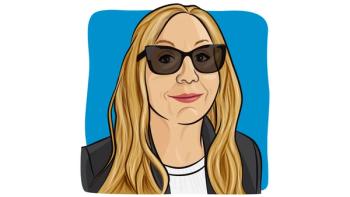
Support Networks in Hairy Cell Leukemia
Transcript:
Ken Jensen: Anna, you have recently implemented a community forum on our website that allows patients, their friends, and loved ones to interact with other patients. Could you expand on that a little bit?
Anna Lambertson: Sure, Ken. We kept hearing from patients that just as they have this thirst for information, they really want to have connections with other patients. And as we’ve said, when a patient has a rare disease like hairy cell leukemia, he or she will most likely never have encountered someone with this disease prior to diagnosis. Their family and friends may have never heard of the disease before their diagnosis. And once you’ve gone through treatment, it’s frustrating if you relapse or if you have other complications. Patients often feel a bit lonely in their diagnosis and as they pursue treatment. We kept hearing from patients that they were looking for some of those community connections, so we launched this online community. And I think it’s really interesting to see the very amazing response that we’ve had. Patients have truly flocked to it and have been sharing a lot of really interesting information about their own experiences with this disease. They’ve been sharing, swapping stories.
Ken Jensen: I found it incredible that over 100 people signed up what, in the first week?
Anna Lambertson: Just in the first couple of days we had over 100 people signed up, and now we’re going to reach 200 pretty quickly. Again, this is a rare disease and when patients have an opportunity to connect with others, I think they seem to jump at it. That being said, we do know that every patient is different. And some patients may feel comfortable sharing aspects of their diagnosis and treatment with a spouse or with a family member. Others may feel more comfortable sharing with a colleague. Maybe they feel like they’re bothering their family by sharing this information. What I always encourage patients to do when they reach out is to take some time to think about what their own comfort level is in sharing this personal information. They should never feel pressured or forced to share their story with anyone other than their doctor. If they only want to speak to their doctor about their personal experience with hairy cell leukemia, that’s what they should do.
Ken Jensen: I think it’s very important that they have a very good and open relationship and communication with their doctor. From a personal viewpoint, I think they want to find a doctor who is also willing to consult with other doctors who are known in the field. I’ve been very impressed with our doctors in the centers of excellence. These are the world’s greatest doctors in terms of knowledge of hairy cell leukemia, and yet they are often consulting with each other on particular cases and collaborating on what kinds of treatments would be best for a particular case or just in general in the future.
Anna Lambertson: That’s a really good point. We’ve said that a relationship between the doctor and the patient is critical. It’s probably the most important partnership in helping a patient determine what treatment options are best for him or her. And when a patient and the doctor have an open line of communication, when the patient feels that they can ask questions when they trust their doctor to give them accurate information, they feel that they’re going to get the truth about their situation, about their disease, and about their options. That’s the best way to achieve optimal results for the patient.
And it is remarkable through our centers of excellence — we have 27 around the world — and as you’ve said, these are the leading experts in hairy cell leukemia. They have perhaps the most experience treating patients. They conduct clinical trials. In fact, Dr. Kreitman is one of those doctors, the NIH [National Institutes of Health] is one of those centers of excellence. And we do see that these doctors consult with each other, collaborate with each other, learn from each other. I think you would agree that if you were diagnosed right now with hairy cell leukemia or if you relapsed, you would want a doctor who, as you’ve said, would be willing to consult.
Ken Jensen: Absolutely. In fact, my doctor did. When I last relapsed again, she consulted with one of the experts just to make sure that what she thought was the best treatment was in fact the best treatment.
Transcript Edited for Clarity




